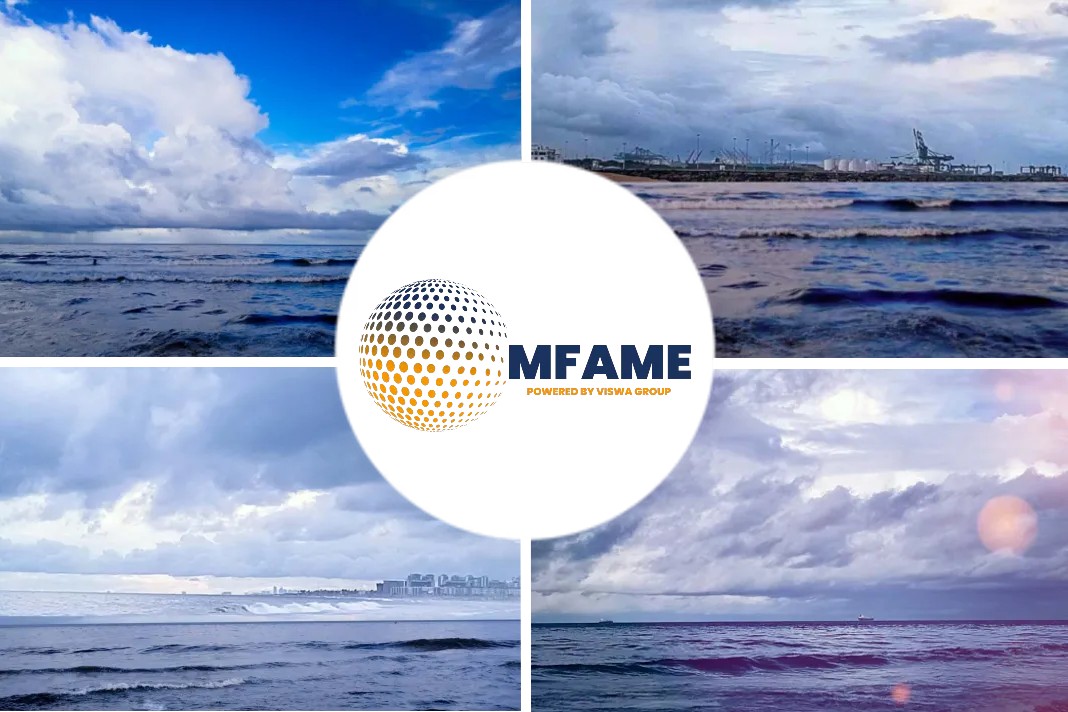In an ironic twist, California officials are encouraging ocean-going vessels not to plug into shore power for several days to reduce demand on the electric grid during a record heat wave and instead use dirtier energy sources for power at berth because the electric infrastructure installed to cut pollution, including climate-warming greenhouse gasses, is now under threat, reports American Shipper.
Preserving power capacity
Gov. Gavin Newsome on Friday afternoon issued a new emergency proclamation aimed at preserving power capacity that gives vessel operators flexibility not to plug into on-dock electric power stations through next Saturday. Vessels berthed between Sept. 3 and Sept. 7 won’t be required to use shore power until next Sunday.
Current regulations require 80% of container, cruise and refrigerated vessels that call at the ports of Los Angeles, Long Beach and Oakland to use shore power, or alternative “bonnet” technology that covers a ship’s exhaust stacks to contain and treat harmful emissions.
“As good corporate citizens, we anticipate that many of our member vessels will participate as requested by Governor Newsom,” said Mike Jacob, vice president and general counsel for the Pacific Maritime Shipping Association, in an email.
Auxiliary engines
The governor’s executive order said that arriving vessels can temporarily use auxiliary engines to power onboard systems, such as lights, refrigerators, computers and pumps, during loading and unloading. Vessels already at berth also have permission to disconnect from the electric system during the heat emergency.
Auxiliary engines are much much smaller because they are not used for propulsion. Under California and U.S. law, vessels are required only to use low-sulfur distillates or refined gas fuels within U.S. waters.
Jacobs said it would be unrealistic for a vessel that has cargo operations underway to pause container loading and unloading activity to bring in an extra shoreside power crew to unplug a vessel. Due to the holiday weekend and emergency calls for electric infrastructure support, specialized labor to handle non-routine ship connections may be limited, he surmised.
Newsom asked several elements in the California economy, including the maritime industry, to reduce power use during the heat event. Temperatures are intensifying and expected to be 10 to 20 degrees warmer than normal through the middle of the week, increasing demand for air conditioning and straining the electric grid. Temperatures are forecast to reach 102 degrees Fahrenheit on Sunday and 95 on Monday.
CAISO project
The California Independent System Operator (CAISO) projects energy demand this weekend is expected to exceed 47,000 megawatts, the highest since the summer of 2017. The agency has called on Californians to conserve energy from 4 p.m. to 9 p.m. by avoiding the use of large appliances and setting the thermostat to 78 degrees or higher, if health permits. Newsom’s order also gives state agencies and utility operators authority to temporarily increase energy production, including use of backup generators. A prolonged drought has reduced the state’s ability to generate hydroelectric power.
“The duration of this heat wave is unlike those experienced in recent history, increasing the length of time the grid will face peak demand,” Newsom said in announcing the emergency measures.
California issued similar heat advisories for ports on four occasions in 2020 and 2021.
Starting in 2023, California Air Resources Board rules will apply by terminal rather than by vessel company, and require the vessels to control emissions at all times except for allotted exceptions.
The updated regulation also covers auto carriers and tankers for the first time. Auto carriers will need to comply starting in 2025. Tankers docking at the Port of Los Angeles and the Port of Long Beach must also comply starting in 2025, while tankers in Northern California have until 2027.
Containerships are complying with alternative marine power rules although many vessel calls since the pandemic fall outside the requirements because they aren’t regularly scheduled or the vessels aren’t large enough.
Did you subscribe to our daily Newsletter?
It’s Free! Click here to Subscribe
Source: American Shipper
















